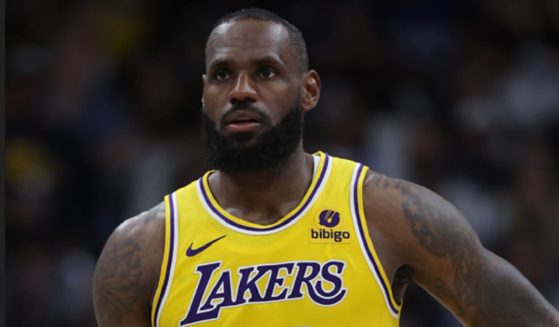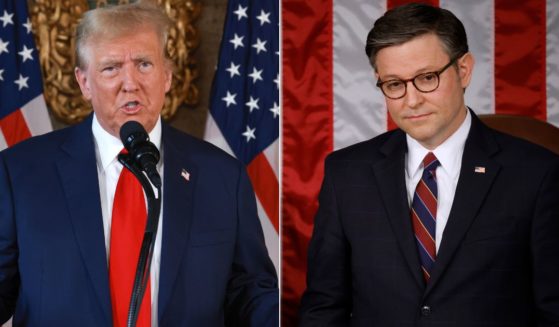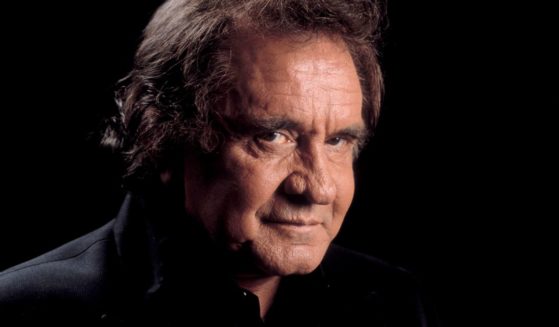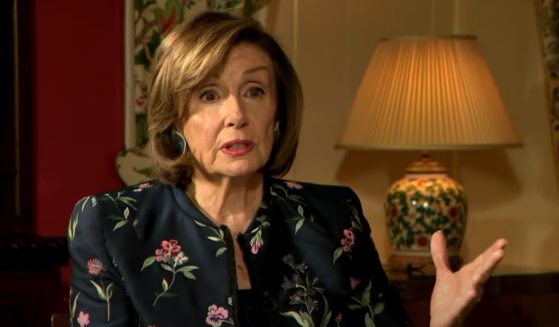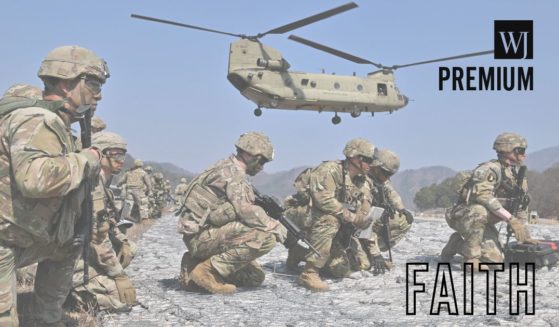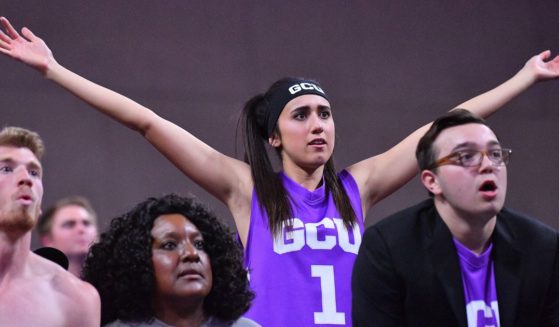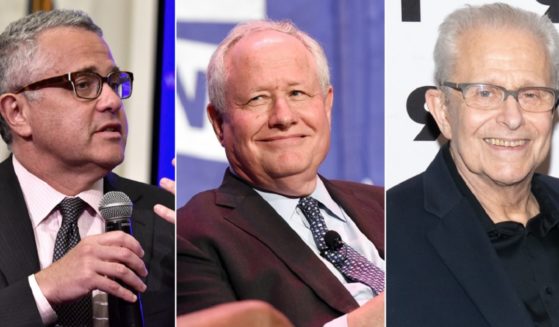Muslim World Seeks To Boycott Entire Country Over Cartoons
Muslims in the Middle East and beyond on Monday broadened their calls for boycotts of French products and protests as a clash over depictions of the Prophet Muhammad and the limits of free speech intensified.
Kuwaiti stores pulled French yogurts and bottles of sparkling water from their shelves, Qatar University canceled a French culture week, and calls to stay away from the Carrefour grocery store chain were trending on social media in Saudi Arabia and the United Arab Emirates. Protests have been held in Turkey, Pakistan and the Gaza Strip.
The beheading earlier this month of a French teacher who had shown caricatures of Muhammad in class has once again ignited a debate over such depictions, which Muslims consider blasphemous.
The growing confrontation is raising political tensions between France and some Muslim-majority nations and could put pressure on French companies.
The teacher, who was killed by an 18-year-old Chechen refugee, has been heralded at home as a national symbol of France’s dearly held ideal of free speech.
French President Emmanuel Macron has vigorously defended such depictions. At a memorial for the teacher last week, Macron said: “We won’t renounce the caricatures.”
On Sunday, he appeared to double down. In tweets published in both Arabic and English, he wrote: “We will not give in, ever.”
He added that France does not accept hate speech and respects all differences.
We will not give in, ever.
We respect all differences in a spirit of peace. We do not accept hate speech and defend reasonable debate. We will always be on the side of human dignity and universal values.— Emmanuel Macron (@EmmanuelMacron) October 25, 2020
Macron’s government plans a bill aimed at rooting out “Islamist separatism,” which he contends has created a parallel culture in France, one that rejects French laws and norms.
While the president blamed some of this separatism on France’s brutal colonial past in North Africa, he was quoted as saying Islam is “a religion that is in crisis all over the world” and that Muslim positions are “hardening.”
Macron’s stance has drawn anger from Muslims around the world.
On Monday, hashtags in Arabic on Twitter calling for French boycotts were trending high. Qatar University postponed its French cultural week indefinitely, saying its administration views insults to Islam and its symbols as unacceptable.
In Kuwait, a number of stores had removed French products such as Kiri cheese, Perrier sparkling water and Activia yogurt from their shelves.
The owner of Carrefour stores in the Middle East issued a statement saying the brand is a fully owned and operated business of the United Arab Emirates-based Majid Al Futtaim. The company said it understands there is some concern among consumers across the region but noted that it employs 37,000 people and is “proud to be from the region and for the region.”
Others on Twitter criticized what they claim is France’s hypocrisy and bias against Muslims. One cartoon widely shared put forth the argument that caricatures of Muslims are defended in “The West” as fair game under freedom of speech protections, while caricatures of Jews are labeled hate speech.
In France, a law aimed at addressing the country’s role during Nazi occupation specifically mentions that anti-Semitism and Holocaust denial are crimes, but it can also be used to prosecute anti-Muslim discrimination or hate speech in general.
Egypt’s top cleric, Sheikh Ahmed el-Tayeb, who is also the grand imam of Al-Azhar, Sunni Islam’s highest seat of learning, condemned what he claimed was a systematic campaign aimed at dragging Islam into political conflicts and discord.
Turkish President Recep Tayyip Erdogan has been the most vocal on the political front, saying Macron needed his head examined and had lost his way. France responded by recalling its ambassador to Turkey.
Pakistani Prime Minister Imran Khan said the French leader chose to encourage anti-Muslim sentiment and deliberately provoke Muslims by encouraging the display of blasphemous cartoons targeting Islam. Pakistan also summoned the French ambassador to lodge a protest over Macron’s condoning of the caricatures.
Amid the political barbs, neither Erdogan nor Khan has publicly condemned the killing of the French teacher.
While many Muslims lament the expectation that they must condemn terrorist attacks they claim have nothing to do with Islam or its values, the general secretariat of the 57-nation Organization of Islamic Cooperation was among several bodies and groups that have denounced the killing.
Some intellectuals in the Muslim world have questioned those who are only outraged by the cartoons: Diana Moukalled, a Lebanese writer and co-editor of the independent Daraj news site, criticized how some people appear to be more offended by the cartoons than by the beheading of the French teacher.
Saudi Arabia’s senior council of clerics issued a statement saying defamation of Muhammad only serves extremists who want to spread hatred. While denouncing insults against Islam, the clerics also cited the prophet’s “mercy, justice, tolerance” in their statement.
The head of the Saudi-based Muslim World League, Sheikh Mohammed al-Issa, told a Saudi news channel that while caricatures of Muhammad are insulting to Muslims, the prophet’s influence and status are greater than any impact from such drawings. He said Muslims should not overreact, and that the prophet himself faced insults much worse in his lifetime but showed Muslims the right way to act with patience and manners.
It’s certainly not the first time France has grappled with radical Islamic terrorism, or with questions about free speech.
Five years ago, French-born al-Qaida extremists killed 12 employees of the satirical weekly Charlie Hebdo in response to its publication of caricatures depicting Muhammad. Those cartoons also sparked mass protests in Muslim-majority countries, with some turning deadly.
The trial over the newsroom massacre is currently underway in Paris.
In 2016, an Islamist militant killed 86 people in Nice when he drove a truck through a crowd celebrating Bastille Day, and in 2015, terrorist attacks at the Bataclan theater and other sites around Paris left 130 people dead.
In the wake of Macron’s comments, a small rally was held Monday in the Gaza Strip outside the French cultural center with people carrying banners showing photos of Maron with an “X” over his face. They held banners that read: “Despite Macron’s malice, we prevail for our Prophet.”
In Pakistan, Muslims protested Monday in Quetta, and the leader of a radical Islamic party called on people to hold a rally against France on Friday in the eastern city of Lahore to mark Muhammad’s birthday, which is traditionally a time of celebration.
Meanwhile, groups ranging from the Taliban in Afghanistan to Hezbollah in Lebanon have condemned Macron’s defense of caricatures depicting Muhammad.
[jwplayer xut02lnA]
The Western Journal has reviewed this Associated Press story and may have altered it prior to publication to ensure that it meets our editorial standards.
Truth and Accuracy
We are committed to truth and accuracy in all of our journalism. Read our editorial standards.

